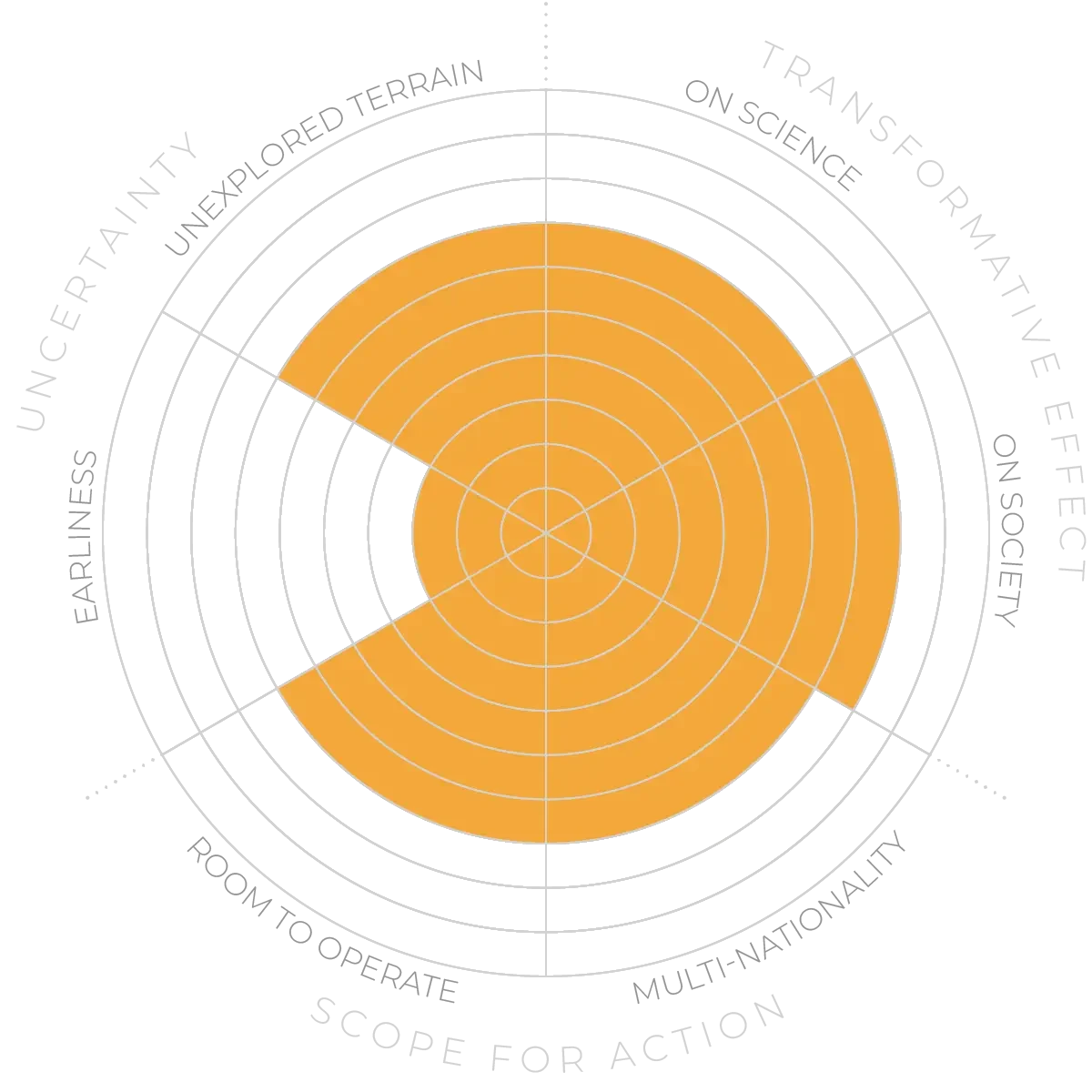Future Horizons:
10-yearhorizon
Qualitative approaches inform decision-making
25-yearhorizon
A bank of qualitative futures knowledge is established
Advances in qualitative approaches to generating futures knowledge are uneven across sectors. As we anticipate a shift towards sustainable clean-energy futures, the energy sector provides one early example of successful implementation. This has led to new accountability to human and societal futures, with benefits in guiding strategy, investment and development. Companies, governments and multilateral bodies have historically depended largely on quantitative knowledge derived from economic forecasts, predictive data analytics and expert opinion to inform energy scenario-building and decision-making around long-term investments in costly infrastructure.24 The inability of these methods to envisage more diverse, inclusive and subsequently realistic and plausible futures has led to a lack of reliable knowledge and a crisis of the imagination.
In response, social sciences, humanities and speculative design have produced accessible new qualitative knowledge to guide decision-makers who realise the need to attend to and account for social and societal futures in the energy sector. This new layer of knowledge has both productively complicated existing assumptions and ensured that the roles of diverse experiences and agencies in shaping futures are ethically and inclusively accounted for. For example, researchers have used qualitative research to revise existing assumptions: where “social acceptance” of energy technologies or interventions has not worked, energy stakeholders have been open to new social-science-evidenced concepts of “social readiness” and “social value”. Other sectors where futures scholars have translated qualitative futures knowledge to address stakeholder challenges are related to city data, education, net-zero transition and commercial product development.
Inclusive futures knowledge - Anticipation Scores
The Anticipation Potential of a research field is determined by the capacity for impactful action in the present, considering possible future transformative breakthroughs in a field over a 25-year outlook. A field with a high Anticipation Potential, therefore, combines the potential range of future transformative possibilities engendered by a research area with a wide field of opportunities for action in the present. We asked researchers in the field to anticipate:
- The uncertainty related to future science breakthroughs in the field
- The transformative effect anticipated breakthroughs may have on research and society
- The scope for action in the present in relation to anticipated breakthroughs.
This chart represents a summary of their responses to each of these elements, which when combined, provide the Anticipation Potential for the topic. See methodology for more information.



